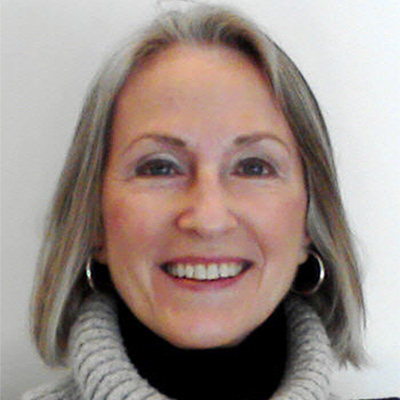
Fellow, Center for Peacemaking Practice, Carter School, 2022-2024
Biography
Ann L. Phillips, PhD, is a scholar-practitioner with decades long experience researching and teaching about system transitions in the former Soviet Union at US and European universities complemented by practitioner work for USAID, The George C. Marshall Center for European Security and USIP on assistance to conflict affected and fragile states in the region. She is currently a Fellow at the Center for Peacemaking Practice, Jimmy and Rosalynn Carter School for Peace and Conflict Resolution at George Mason University in Arlington, Virginia.
Functional expertise: governance, system transitions, conflict prevention and mediation; stabilization and reconstruction in fragile and conflict affected states, peacebuilding, inter-agency and multinational coordination.
Geographic areas of expertise
The Former Soviet Union, Central-East Europe, the Western Balkans, West Africa, Horn of Africa, Lake Chad Basin, South Asia.
Applied skills
Conflict management training for African Union Peacekeepers in conflict assessment; R2P; communication; sexual exploitation and abuse; negotiation, mediation, facilitation skills; working with interpreter; tailored to missions in which they would serve, e.g. AMISOM, UNMISS UNAMID, MINUSCA.
Ministry of Defense Advising Program (MODA). Workshops on governance, conflict assessment and strategies in assigned countries.
Inter-organizational Table Top exercises. Design, develop and implement exercises on real world challenges. E.g. crisis management in the Republic of North Macedonia; CVE in the southern Philippines, CVE in the Lake Chad Basin, transitions in the Horn of Africa, the Red Sea cross-regional challenges.
Analysis of regional developments, conflict assessment and workshop planning as Senior Advisor to the South Caucasus project, US Institute of Peace.
Public presentations and discussions
“Navigating Turmoil: the Dynamics of Armenia and Azerbaijan Relations in 2024” Panelist, Institute for European, Russian and Eurasian Studies, Elliott School, George Washington University, 14 March 2024
“Peacebuilding in the South Caucasus” Panelist. Kennan Institute, Woodrow Wilson International Center for Scholars, 8 February 2024
Functional Coexistence panel—presenter and discussant, GMU Peace Week 28-30 March 2023
“What is going on in Lachin today?” Panelist, Institute for European, Russian and Eurasian Studies, Elliott School, George Washington University, 7 February 2023
“Revisiting Nagorno-Karabakh: US Foreign Policy Towards the Armenia-Azerbaijan Conflict,” Panelist, Johns Hopkins University, SAIS, 18 November 2021
“Armenia and Azerbaijan: Renewed Conflict in the Caucasus,” Roundtable. George C. Marshall Center European Center for Security Studies, Garmisch-Partenkirchen, Germany, 10 November 2020
- Presentation on history of diplomatic efforts to resolve conflict
- Discussion of the 10 November truce agreement and implications for durable peace
“Zeroing in on Some of the World’s Hotspots: The South Caucasus,” George Mason University, 28 April 2021
“Nagorno -Karabakh Conflict,” Presentation and discussion, American University10 February 2021
“Nagorno-Karabakh conflict,” presentation and discussion, George Washington University, 22 October 2020
Media Interviews on the Armenia-Azerbaijan conflict: Voice of America, Sirius XM, Public Radio WRHU-FM, Washington Times, FoxNews/radio
Select publications
“Time for a New Approach to the Armenia-Azerbaijan Conflict: Prospects for Functional Coexistence”
edited volume on functional coexistence, Taylor and Francis, forthcoming, 2024.
“Salvaging UN Peace Operations: What Can Realistically Be Done?” in The UN in the 21st Century: Perspectives and Prospects. Editors: Elena Aoun, Michel Liégeois and Tanguy Struye de Swielande. Louvain-la-Neuve: Presses universitaires de Louvain, 2018; pp. 21-40.
“Providing Security in Times of Uncertainty: Opting for a Mosaic Security System,” Final Report of the Global Reflection Group, co-author, The Friedrich Ebert Stiftung, June 2017.
